ACC2013 call for abstracts
Date Created:
Thursday, March 21, 2013 - 16
Format:
text
Language:
English
Date Accessioned:
Thursday, March 21, 2013 - 16
Peer Reviewed:
No
- Log in to post comments
|
UN Economic Commission for Africa, Menelik II Ave. P.O. Box 3001, Addis Ababa, Ethiopia. Tel: +251 11 551 7200, Fax: +251 11 551 4416
World Meteorological Organization, 7bis, avenue de la Paix, Case postale 2300 CH-1211 Geneva 2 Switzerland. Tel.: +41 (0) 22 730 81 11 Fax: +41 (0) 22 730 81 81
|
Sponsors
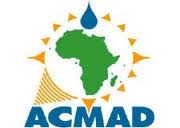 |
 |
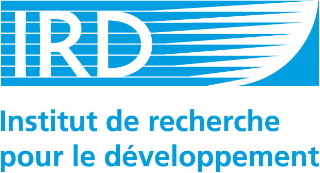 |
 |
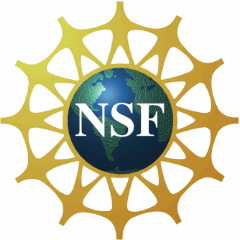 |
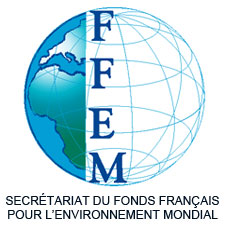 |
 |
 |
 |
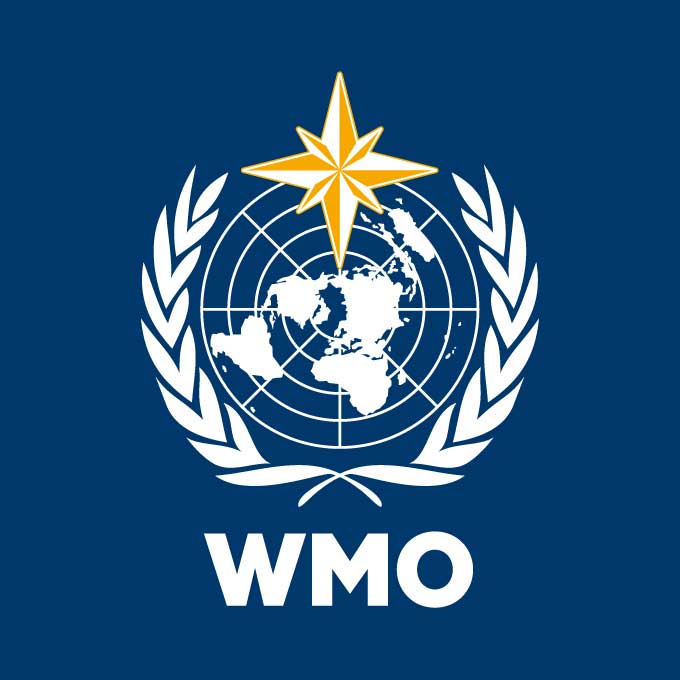 |
 |
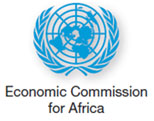 |
 |
 |
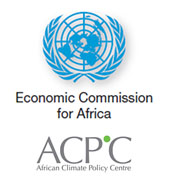

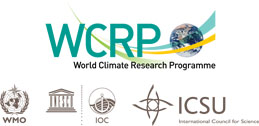



Comments
Frontiers
<p>Dear friends, because the mail to acc2013@climdev-africa.org was returned, we send our comments on :Frontiers" here:</p>
<p> </p>
<p>Dear colleagues,</p>
<p>we have the following reaction.</p>
<p>This meeting in Arusha indicates to want to bring researchers, practitioners and users in the field of African climate together to share knowledge and accelerate the harnessing of climate science to the service of decision makers and communities in Africa. Wanting to enhance climate sciences output for Africa is only one of the necessities. If simultaneously we are not able to considerably increase absorption of climate sciences operational results within the African communities, we are again only filling shelves in libraries or storing material in space within "tablets", but we do not get results used in villages anywhere.</p>
<p>There is typically, also in GFCS, hardly any established system for climate services provision for agriculture available anywhere near African communities; nor are there many user interface platforms and is there much capacity building in place to make absorption of warnings, predictions and other science based results possible. There are only a few trials to see whether our predictions, anyway still with low to medium skill, are of anybody’s use. This also applies to other fields than agriculture.</p>
<p>Climate Field Schools, and more recently Science Field Shops, have been tried out. It appears that any success with these new educational commitments of agricultural/agroclimatological extension, demand intermediaries that have been well trained to explain climate advisories for agriculture and to establish climate services for agriculture with farmers in their fields. We are able to discuss results obtained over less than a decade in South Africa, Zambia and Indonesia that could serve as examples of reaching farmers in a changing climate by improved agricultural extension that fits a rural response to climate change.</p>
<p>We feel that this “climate extension” cluster is presently underrepresented in the Arusha conference. Mrs. Dr. Gugulethu N.C. Zuma-Netshiukhwi* (to be proposed for being in Arusha), Prof. C. (Kees) J. Stigter, Mrs. Prof. Sue Walker, University of the Free State, Department of Soil, Crop and Climate Sciences, Bloemfontein, South Africa (May 2013)</p>
<p>*I will officially graduate administratively next month, my thesis has been accepted and approved</p>
Abstract submission
I have failed to upload my abstract below. I need your assistance.
Title:Perceptions on climate change effects and adaptation strategies by rural communities in the Eastern Cape Province of South Africa
L. Zhou, L. Musemwa & V. Maphosa
Abstract
This paper presents in-depth Eastern Cape Province case study findings on rural household vulnerability and coping strategies to climate change. Eastern Cape Province is one of the poorest provinces in South Africa, nearly 60% of which live below the poverty line. This extreme high incidence of poverty and jobless renders the majority of these people highly vulnerable to the impacts of climate change as they are heavily dependent upon government social grants and rain-fed crop and livestock production for their livelihood. Given the current economic situation in the mining sector and commercial farming of frequent wild–cat strikes, the government has lost a substantial amount of revenue inform of tax. This is most likely to impact negatively on the social policy of South Africa. On the other hand, the agricultural sector is being affected by high temperatures, low precipitation and frequent droughts. Eastern South Africa is projected to experience drier and hotter extreme weather events such as flash floods and droughts. The government of South Africa is facing challenges on how best to prepare communities for climate change in such a manner that they could benefit from positive changes that minimize the negative effects. Communities already face bleak prospects, have insecure livelihoods, and are uncertain of obtaining food on a daily basis. Both adaption and mitigation strategies should be put in place so as to reduce the impact of climate change on rural farmers who depend on crop and livestock production for their livelihoods. The challenge is that climate change in South Africa is a relatively new issue. There is a limited human capacity and financial capital to create educational resources and to conduct training programmes for the farming communities on the new technologies and adaptations strategies. Adaptation for the future in agriculture is all about staying ahead and being progressive by optimizing climatic conditions in order to maximize output in a sustainable manner and maintaining a competitive edge. From the surveys that were conducted in the province, farmers perceive that there is a change in climate, reporting a decrease in amount of rainfall in the current years than in the past, and dwindling water resources. They also reported an increase in; temperatures, intensity of snow, intensity of droughts. Emergence of new disease and ticks and degradation of grazing land due to increased Intensity of bush encroachment, thus posing some challenges on livestock farmers. In trying to reduce the impact of climate change on their farming activities, some farmers reduce cattle and substitute them with sheep and goats. Some farmers buy feed supplements for their livestock. Other farmers send their livestock (cattle) to areas where there is better grazing. While some farmers decided to sell all their livestock and engage in non-farming activities. Some of the farmers use different combination of the strategies mentioned above. Most of the farmers have reported that they have stopped growing crops on their arable land. They had positive hope on non-agricultural project as the only strategy that the government should promote in their communities to serve them from food insecurity.
Keywords: Adaptation, climate change, livelihood, perception, South Africa, Vulnerability
Failure to upload the abstract
Hello, I failed to upload my abstract and the CV.
Efficacy of microscale climate models in simulating thermal bioclimate in tropical urban areas: example of Dar es Salaam, Tanzania.
Emmanuel L. Ndetto and Andreas Matzarakis
Chair of Meteorology and Climatology, Albert-Ludwigs University Freiburg
With the mounting evidence of climate change due to anthropogenic CO2 and humanity increasingly urban, better understanding of local microclimate in urban areas is necessary. This is particularly important for the adaptation to climate change, better planning of cities and improved quality of life to urban dwellers. Urbanisation results in significant modification of local climates. For instance, the the modification of local climates in urban areas can be manifested through changes in air temperature (e.g. urban heat island), moisture and wind speed which in turn affect the human thermal comfort conditions. Besides, the heat exchange conditions between human body and the environment is governed by air temperature, humidity, wind velocity and short and long wave radiation hence it is proposed to better assess the impacts of climate change in a physiologically significant manner particularly for the fast growing coastal urban areas in the tropical Africa. There is also a need to better understand how to detect and analyse changes in thermal bioclimate of urban area. However, most of the microscale urban climate models and the thermal indices have been developed and extensively applied to monitor urban climate in mid-latitude cities. This study therefore focused on examining the effectiveness of microscale urban climate models in assessing the human bioclimate conditions in tropical cities. Three models of RayMan, Envi-Met and Solweig were applied to assess and examine changes in thermal bioclimate of Dar es Salaam city in Tanzania. Dar es Salaam is one of the fast growing cities in Africa with a current inhabitant of 4.4 million. The results were interpreted using two different bioclimate indices both developed basing on the human thermal energy balance. These indices are the Physiologically Equivalent Temperature (PET) and the Universal Thermal Climate Index (UTCI). The results demonstrate how microscale climate models can be useful in studying urban climate in the tropics hence providing an improved understanding of climate impacts in urban areas based on human comfort.
Hello, I failed to upload my abstract and the CV.
Urban management in a changing climate: understanding the potentials and limits of local organizations
Aliyu Kawu
1Department of Urban and Regional Planning, Ahmadu Bello University, Zaria – Nigeria
2Department of Urban and Regional Planning, Federal University of Technology, Minna – Nigeria
CORRESPONDENCE: P O Box 4232, Minna 920001, Nigeria aliyukawu@gmail.com +234 (0) 8068015046 & 8028597919
ABSTRACT
The global phenomenon of climate change has brought to limelight many areas in which humanity is and can be exposed to life threatening situations. This has equally been explored to identify areas of needs and strength in order to increase resilience to known and anticipated outcomes of interactions between man and his environment. Of recent, African urbanization has emerged with challenges for urban centres and their surroundings. The pressing need to complement public effort in fighting negative effects of flooding, soil erosion, land degradation, urban disasters, and increasing infrastructure deficiency, has given birth to the formation of self-help groups like Community Based Organizations (CBOs). Previous studies offered insufficient explanations on why local communities and resident organizations are recording high degree of success in low income areas of Asia and southern America, but similar endeavours are not recording expected outcomes in Nigeria and sub-Saharan Africa. While the effects of poverty and deprivations are blamed for the increasing vulnerability of urban poor in these environments, the fact that these victims are daily devising measures to confront the situation – even those that are clearly beyond their means and competence, are usually less reported. Selective studies of urban organizations also offered limited understanding of the processes and policies needed to tackle mounting issues of 21st century global urbanization opportunities and challenges. Amongst these is the knowledge about issues relevant to purposeful intervention by the victims, stakeholders, other agencies and the public institutions – including those with the clear mandate to protect this increasing urban majority. Lessons from the explanation of outcomes will assist government and the research community to determine appropriate mechanisms for more understanding and to enlist the contributions of local organizations in all areas of mitigating urban disasters and other negative effects of climate change. Since the environment of a project and the conditions of its emergence has influence on its outcomes and sustainability, an examination of the structure and activities of organizations formed to confront the different facets of the consequences of climate challenges is important. This was carried out using Minna, a mainly administrative and emerging urban settlement in central Nigeria – West Africa. Using stratified sampling methods, physical and socio-economic data were collected from the community groups and their members across the metropolis. This was backed by Focused Group Discussions (FGDs) to elicit detailed explanations on the endeavours and outcomes of community groups in one of the most expanding urban enclaves in Nigeria. This study explored the participatory inputs of urban residents in order to understand processes and situations that can lead to high or low rates of outcomes in communal endeavours to ensure urban sustainability by building resilience and limiting the negative effects of uncertain weather and climate, deficient urban infrastructure and other livelihood opportunities. Organizational characteristics and structure, membership processes and procedure, the available outlets for contributions towards the success of collective activities, nature and intervention by internal and external bodies including public and non-public institutions, were found to be highly influential in determining successful or failed endeavours of local organizations in all income groups. Additional research is needed to unravel the extent of the constraints that exists and which can limit needed collaboration of local communities and institutions with outside organizations including public agencies and foreign NGOs. But this can hardly be achieved with the present level of deficit in environmental, spatial and socio-economic data frequently experienced in this part of developing world. Until this crucial aspect of the research works on climate change and disaster mitigation is resolved – through indigenous pedagogies, research findings and particularly recommendations will continue to be at variance with the reality on the ground.
KEYWORDS: Africa, climate change, Community organizations, environment, urban disasters, urban vulnerability, urbanization
Aliyu Kawu is a doctoral student in the Department of Urban and Regional Planning, Ahmadu Bello University, Zaria, and an academic staff in the Department of Urban and Regional Planning, Federal University of Technology, Minna, both in Nigeria. His areas of interest are in Climate Change and Disaster Risk Mitigation, Spatial Analysis, Regional Development, Urban Management & Infrastructure Finance.
PLEASE, I NEED SUPPORT/SPONSORSHIP TO ATTEND THIS IMPORTANT EVENT.
I WOULD BE GLAD IF I CAN HAVE EMAIL ADDRESS THAT I CAN SEND THE OTHER DOCUMENTS TO.
THANK YOU.
failure to upload my abstract and the CV
Global Climate Change and Public Infrastructure Development: Understanding vulnerability of the Nigerian Urban Poor
Aliyu Kawu
1Department of Urban and Regional Planning, Ahmadu Bello University, Zaria – Nigeria
2Department of Urban and Regional Planning, Federal University of Technology, Minna – Nigeria
CORRESPONDENCE: P O Box 4232, Minna 920001, Nigeria. aliyukawu@gmail.com +234 (0) 8068015046 & 8028597919
ABSTRACT
Public infrastructure is provided to better the lot of tax payers and the general citizens of a country. Activities of governments and urban authorities derive legitimacy and continuous allegiance through this singular provision. As the world increase in population and urban environments especially developing countries’ bourgeoning cities continue to increase in millions every year, the role of functional urban infrastructure continue to be crucial and in some instances indispensible to daily survival of many. While governments and NGOs are known to respond to this unprecedented demands placed on the public sector, the negative effects of the provisions of these necessities of urban livelihood are often outside the focus of many assessments. The 21st century tempo of global climate change is known to have driven many weather elements to the extremes, however, assessments on the consequences of large urban development projects are often overshadowed by works highlighting their acceptability and or sustainability. Large scale urban infrastructure is known to alter existing land uses and socio-economic activities by increasing the rates of run-off and flooding thereby leading to erosion, land degradation and river siltation, - yet, how any or a combination of these effects are further increasing the vulnerability status of those downstream, are in most cases overlooked . while, the mere execution of large office blocks is known to attract the building of illegal structures and squatter settlements around the land nearby, little attention has so far been extended to the consequences originating from the ill-conception and or bad execution of such projects, or, when such activity, no matter the size, is taking place in neighbourhoods already battling increasing manifestations of global climate change phenomenon. This research work recognised previous works and their particular findings that; poor urban residents in Africa and similar developing areas of the world, do locate in unsafe areas and could also be aware of the consequences of their actions. However, the seemingly accepted stance that these urban enclaves, especially in Nigeria, are further witnessing environmental degradation because of the unregulated activities of their inhabitants; is what is been challenged here. Field assessment have revealed that a number of these environmental catastrophes have originated from irregular siting, execution and management of these developmental projects. It was also shown that; coupled with the help of extreme weather conditions, badly executed urban formal residential estates, large commercial complexes, inter-regional transportation arteries, can and have been known to set in motion serious environmental problems that were hitherto unknown and are quite beyond the capacity of the local urban administration to respond adequately. Using physical observations and socio-economic survey data acquisition and analysis techniques, this research work intended to draw global attention to the avoidable albeit increasing vulnerability of the urban poor as public urban infrastructure development continues to be executed with little or no regards to the local environment, and the end-users. Areas open for further exploration lies between the interface of proper project identification, planning and execution, carried out with the full participation of the indigenous community and the end-users. Further work needs to be done on the use of local knowledge in the proper identification and execution of development projects, particularly as these development efforts stand to be affected by the immediate terrain and the changing weather and climate – as the indigenous populations, by their privilege of longer tenancy, best understands.
KEYWORDS: Africa, climate change, environment, infrastructure, poverty, urban vulnerability
Aliyu Kawu is a doctoral student in the Department of Urban and Regional Planning, Ahmadu Bello University, Zaria, and an academic staff in the Department of Urban and Regional Planning, Federal University of Technology, Minna, both in Nigeria. His areas of interest are in Climate Change and Disaster Risk Mitigation, Spatial Analysis, Regional Development, Urban Management & Infrastructure Finance.
PLEASE, I NEED SUPPORT/SPONSORSHIP TO ATTEND THIS IMPORTANT EVENT.
I WOULD BE GLAD IF I CAN HAVE EMAIL ADDRESS THAT I CAN SEND THE OTHER DOCUMENTS TO.
THANK YOU.
Failure to upload CV,Motivation Statement and Financial Request
PhD Candidate Faculty of Law,University of Cape Town: South Africa
TITLE
Towards the design of a policy and legal regulatory framework to Reduce and Control Emissions from Land Deforestation and Degradation and Enhancing Carbon Stocks (REDD+) in Africa: A perspective from select developing countries
ABSTRACT
Countries are (at the time of writing-April 2013) negotiating a second commitment period for a post-2012 climate change protocol, legal instrument or agreed outcome with legal force under the auspices of the United Nations Framework Convention on Climate Change (UNFCCC). These are expected to be completed as early as possible but no later than 2015 with the outcome to be adopted at the Conference of the Parties (COP)-21 and to come into effect from 2020. One of the mechanisms being negotiated is known as ‘Reducing Emissions from Land Deforestation and Forest Degradation and Conservation and Enhancement of Carbon Stocks’ (REDD+).
The paper outlines this mechanism which is generally perceived as a cheap mitigation option with the largest and most immediate carbon stock impact in the short term per hectare and per year globally. It outlines various challenges and problems in implementing REDD+ activities in developing countries (particularly in Africa) is the absence or lack of clarity on policy and regulatory frameworks to optimise REDD+. Such situation arguably deters potential funders and thus creates an obstacle to the overall functioning of such system. In addition, it is unlikely that adequate financing from donors will be forthcoming in the absence of an acceptable policy and regulatory frameworks. The key issues with legal implications for implementing REDD+ activities are elaborated on in the paper and include: risks of REDD+ being carbon ineffective, potential human rights violations, and possible risks of REDD+ for biodiversity.
In the context of the above international development, the paper outlines and critically reviews the evolution development of REDD+ mechanism in Indonesia, Brazil and Tanzania. It does so with the view to propose a model regulatory framework to implement REDD+ mechanism that is carbon effective, cost efficient, and equity and co-benefits. The central question to be answered by this paper is: what is the ideal model legislative framework sufficient to implement REDD+? The overall objective is to compare international best practice and make recommendation for the optimum legislative framework for Tanzania. The paper draws numerous conclusions and proposes essential elements that would be a model policy and legal regulatory regime for REDD+ at a domestic level.
enquiry
I have failed to submit my abstract below, please help.
Local Knowledge, Global Ignorance? Insights from an Eastern Cape Climate Change Study
A Apraku, P Moyo, W Akpan (all University of Fort Hare)
apprakuamos@yahoo.co.uk
Climate change is considered by many to be one of the greatest challenges to humanity, with Africa seen as one of the most affected continents. Some of the impacts of climate change in Africa which are the subject of most research include rising sea levels, changing precipitation patterns, increase of extreme weather events, rising temperatures, decline in agricultural productivity, water security, and destruction of ecosystems and biodiversity. These negative effects of climate change has further widened the boundaries of development and inequality between Africa and other continents, created a new set of refugees who migrate into new settlements to seek new livelihoods, and placed an additional demand on infrastructure in Africa. If left unchecked, the impact of climate change in Africa in the near future is likely to be severe due to high agriculture dependency on weather, limited capacity to adapt and inadequate political commitment to climate change related issues.
There is a growing recognition that purely scientific and modern approaches alone are not enough to mitigate the 'multiple stresses' of climate change such as poverty, inequality, HIV/AIDS, debt crises, and unemployment, which further cripple African governments’ capacity to mitigate and adapt to climate change impacts. This notwithstanding, scholars and experts with the 'Euro gaze lenses' continue to see traditional and Indigenous African approaches to climate change impacts mitigation as barbaric, primitive, archaic, and backward. Is this an element of blatant global ignorance or global deliberate negligence of local African knowledge? Has Africa really got something indigenously relevant to combat climate change related impacts? Is the global world ready to learn something from African traditional knowledge? Even though the debate around indigenous knowledge systems is a contentious one; with the contradictions starting from what constitutes 'indigenous' to whose interests are being served by the documentation of such knowledge, some scholars have acknowledged that, if well harnessed, indigenous knowledge systems can help in empowering local communities in the fight against climate change related issues, and other problems that impede development. Clear insights on Africa’s approach to climate change related problems will help sound Africa’s voice louder on the global climate change platforms.
This paper is based on preliminary findings from an on-going study of perceptions and adaptation strategies in the face of climate-change induced risks and vulnerabilities in five peri-urban communities in Port Elizabeth and East London, Eastern Cape. The study is a qualitative study of five selected peri-urban communities of Port Elizabeth and East London in the Eastern Cape of South Africa with a total sample size of 430 respondents selected through both probability and non-probability sampling methods. The data collection methods in this study are; semi-structured in-depth interviews, Focus Group Discussions, Key Informant Interviews, and a cross-sectional mini-survey. The paper highlights the relevance of local African knowledge in climate change impact mitigation in local African settings and the need to combine modern global approaches with indigenous knowledge and institutions to better handle climate change-related issues.
Amos Apraku
REGISTRATION FEES
As you may be aware , researchers and intending researchers from developing countries often get discouraged from responding to WCRP abstracts announcements because of the fees that are needed for registration let alone other expenses and yet they very inspiring and educative to learner, and form fundamental background to solving problems of African Climate systems. For instance in our Institute Uganda National Meteorological Training School, a number of Students and lecturers had wanted to write abstracts to some of the given Conference themes, but the fee needed for registration scared them off. The reason is that this money is not available because of poverty. Secondly even if it is available they may not be sure of the final outcome of the award. So they prefer to stay away. For this reason it may be difficult to get research ensuciatists from Institutes like ours. Please find a way to enable the poor to participate in WCRP conferences.
When I was submitting my abstract I found it difficult to upload both the CV and Motivation statement pdf files differently. So I was forced to combine them in one Pdf file. But I do not know whether this will be a fault. Lastly is it possible for you to recommend an orally intended presentation to poster?
N.B I stand to be corrected for am not sure whether what I have commented is what you wanted! Please sorry for any inconvinience!
Still find it very difficult to register and apply for funding
Dear Sir/Madam,
You did not make you submission portal friendly at all. All the step Charles asked me to through for submission is to no avail.
I think in this situation one should allowed to register and apply for funding via an e-mail
Regards
Dr. A. O. Ayeni
Village Cooperative Society
Abstract on Village Cooperative Society
For any initiative people need to united due to any impossible can be possible by large number of people. We should find out a different way to gather people in one commitment. As thinking and Youth Foundation Findings nice way to united people where we represent it as name “Village Cooperative Society”. Village Cooperative society is initiative where people will bank a small fund from any selected village. Each family will be countable member in a list.
So, when all family will be under this cooperative society, development will happen. If we can bring all family under one umbrella through this cooperative society then, peace, happiness and discipline will come to our door and we will be able to build a prosperous society and this peaceful society can be a role model for the world not only Climate Change.
Pages